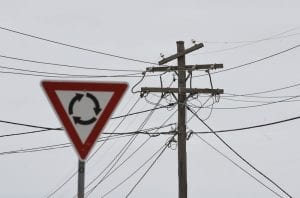Germany has announced bigger and more rapid cuts to its solar feed-in-tariffs in an attempt to reign in the rate of growth in the world’s biggest market for solar power. The country installed 7.5 gigawatts of solar PV in 2011 to take its total capacity to 25GW, and wants to reduce that to around 2.5GW to 3.5GW a year, with a further reduction to 0.9 to 1.7GW by 2017. Germany’s intends to have 66GW of solar PV capacity by 2030.
Part of the problem has been striking a scheme that takes into account the rapid decline in solar PV costs, and prevents sudden surges in demand when a tariff cut is flagged. In response, Environment Minister Norbert Roettgen said he plans to cut premium rates for solar power by between 20.2 percent and 29 percent from March 9 instead of April, and would decrease them further each month beginning in May, rather than six monthly or quarterly as previously flagged. Plants larger than 10MW won’t get support after July 1.
“Germany’s energy overhaul will only be successful if there are adaptions,” Roettgen told reporters in Berlin. “We’ve had an enormous reduction in the incentives in the past few years but the incentives were still too high. Solar is a success story made in Germany. We want it to be an acceptable technology not only in the future but right now. The cost factor has to be at acceptable levels.”
Germany is one of a number of countries (France, England, Italy and Spain) accelerating subsidy cuts to cope with falling panel prices and surging demand. Germany had already cut its tariffs by half and the new cuts take them below the retail price of electricity. The newly announced cuts will take incentives from 24.45c to 19.5c per kilowatt hour for plants up to 10kW, to 16.5c for plants up to 1,000 kW and to 13.5c for plants of up to 10MW. Tere will then be monthly cuts of 0.15c/kWh. German retail electricity prices are at 21c-24c/kWh.
Shares in both German and Chinese solar panel makers slumped sharply on the news. “The cuts will drag module prices down and squeeze margins,” Henning Wicht, lead solar analyst for IHS iSuppli, told Bloomberg. “Module prices in Germany will have to come down at least 10 percent.”
EU power companies push for tighter targets
A group of eight European energy companies have called on the EU to lift its short term emissions reduction target to 30 per cent, set ambitious goals for emissions reduction, renewable energy and energy efficiency for 2030. The letter, signed by Dong Energy, SSE, Eneco, EDP, Public Power Corporation, Acciona, Sorgenia, and EWE, said such measures were necessary to boost investment in green technologies, and to meet the long term goal of an 80 per cent reduction in emissions by 2050.
“The lack of binding targets post 2020, an ETS failing to stimulate investment in renewables, and an outdated energy infrastructure severely threaten to wreck the needed modernisation and decarbonisation of the European energy sector, and do not allow industry to create a sustainable and affordable pathway to reach the EU’s decarbonisation objective,” the companies said.
“Having a stable investment climate is critical for energy companies,” he said. “We are in the historic process of transforming the energy mix of our company to incorporate even more renewables, said Dong Energy CEO Anders Eldrup. “Our current investment plans have a time span of a decade and more. Having a stable investment climate is critical.” Ian Marchant, CEO of UK-based SSE, which recently sold its nuclear energy interests to concentrate on renewables, said the EU should have “longer, larger and leaner” energy targets.








